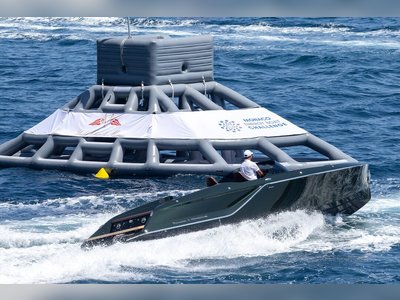Families Demand Abolition of Physical Restraint in Psychiatric Care
Calls for legislative changes emerge as concerns about the mental health care system grow.
In 2022, approximately 8,000 patients were subjected to physical restraint, a controversial measure used in psychiatric care, according to the national association representing families of patients with mental disabilities.
This practice, often regarded as a last resort, involves physically restraining individuals to prevent them from harming themselves or others during crises.
Overall, there were 324,000 hospitalizations in psychiatric facilities in the same year.
The national association, known as Unafam, has formally called for the abolition of mechanical restraint, characterizing it as an extreme coercive measure that infringes upon fundamental rights, such as dignity, freedom, and informed consent.
Unafam highlighted these concerns in a manifesto advocating for the prohibition of restraint, released recently.
As part of its advocacy, Unafam plans to petition the government to amend existing laws governing psychiatric practices.
This push comes as a government-organized interministerial committee on mental health convenes to discuss care practices.
The association reports receiving numerous accounts from families detailing the physical and psychological suffering endured by patients who have experienced restraint.
Many reported feelings of distress, despair, and shame following such encounters.
Additionally, mental health professionals have expressed discomfort with the use of restraint, citing it as conflicting with their mission to provide compassionate care and suggesting that it detracts from the appeal of working in psychiatry.
Unafam argues that the reliance on restraint reflects broader dysfunction within the mental health care system, including inadequate upfront care due to insufficient coordination between general practitioners and psychiatrists, as well as a shortage of mobile mental health teams.
Notably, the association states that about 10% of psychiatric facilities in France do not use physical restraint at all.
In response to these issues, Unafam is advocating for enhanced training for professionals in de-escalation techniques, the development of calming environments, and the collaboration with patients to create personalized prevention plans to mitigate the need for restraint.
This practice, often regarded as a last resort, involves physically restraining individuals to prevent them from harming themselves or others during crises.
Overall, there were 324,000 hospitalizations in psychiatric facilities in the same year.
The national association, known as Unafam, has formally called for the abolition of mechanical restraint, characterizing it as an extreme coercive measure that infringes upon fundamental rights, such as dignity, freedom, and informed consent.
Unafam highlighted these concerns in a manifesto advocating for the prohibition of restraint, released recently.
As part of its advocacy, Unafam plans to petition the government to amend existing laws governing psychiatric practices.
This push comes as a government-organized interministerial committee on mental health convenes to discuss care practices.
The association reports receiving numerous accounts from families detailing the physical and psychological suffering endured by patients who have experienced restraint.
Many reported feelings of distress, despair, and shame following such encounters.
Additionally, mental health professionals have expressed discomfort with the use of restraint, citing it as conflicting with their mission to provide compassionate care and suggesting that it detracts from the appeal of working in psychiatry.
Unafam argues that the reliance on restraint reflects broader dysfunction within the mental health care system, including inadequate upfront care due to insufficient coordination between general practitioners and psychiatrists, as well as a shortage of mobile mental health teams.
Notably, the association states that about 10% of psychiatric facilities in France do not use physical restraint at all.
In response to these issues, Unafam is advocating for enhanced training for professionals in de-escalation techniques, the development of calming environments, and the collaboration with patients to create personalized prevention plans to mitigate the need for restraint.











